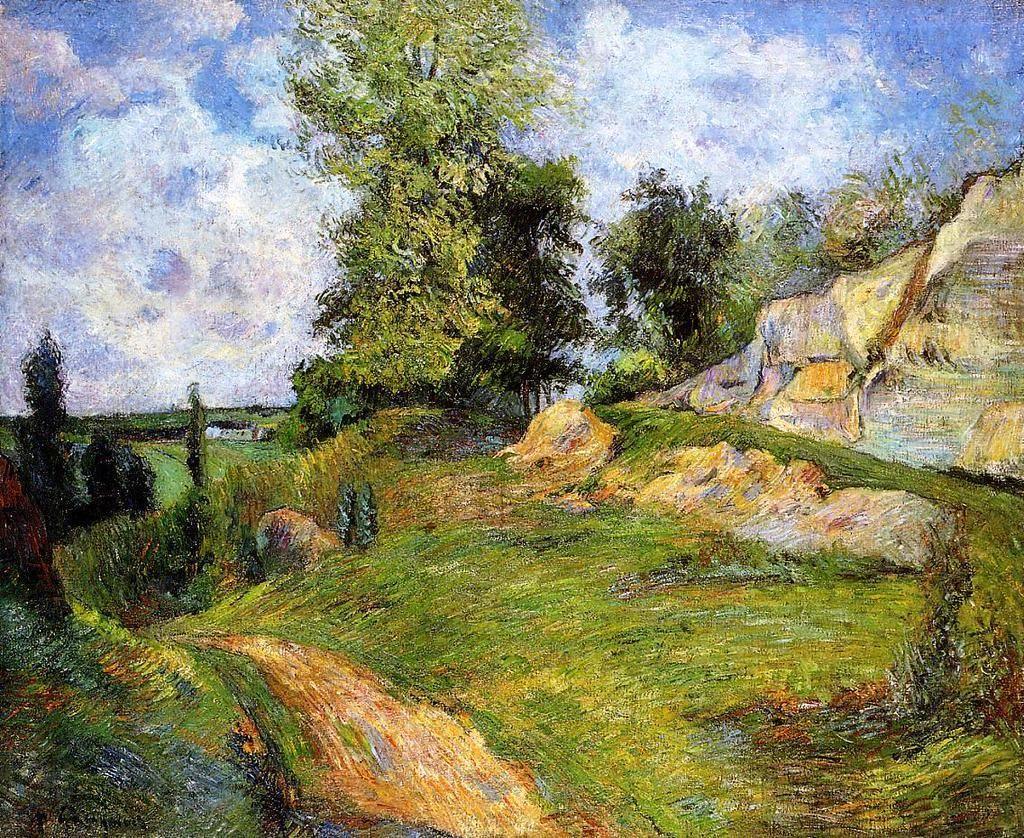Description
The painting "Chou Quarries At Pontoise I" by Paul Gauguin is a masterpiece of Post-Impressionism that has captivated art lovers for decades. This work, which dates from 1889, is one of many that Gauguin painted during his stay in Pontoise, France.
What makes this painting so special is its unique artistic style and carefully designed composition. Gauguin used a bold, thick brushstroke technique to create vibrant texture and a sense of movement in the painting. The composition is asymmetrical, with the quarries on the right side of the painting and a dramatic sky on the left. This arrangement creates a sense of tension and balance in the work.
Color is also a prominent aspect of this painting. Gauguin used a bright, saturated color palette to create a sense of intensity and vitality in the work. Warm tones of yellow and orange contrast with cool tones of blue and green, creating a sense of depth and dimension in the painting.
The story behind this painting is also fascinating. Gauguin was in a moment of transition in his career when he painted "Chou Quarries In Pontoise I". He had quit his job as a stockbroker to devote himself fully to art, and was experimenting with new techniques and styles. This painting is an example of his search for a personal and unique style.
Also, there are little-known aspects about this painting that make it even more interesting. For example, it is believed that Gauguin used a photograph as a reference for the composition of the work. It is also known that the painting sold for just 300 francs at auction in 1891, proving that the value of works of art can change dramatically over time.

